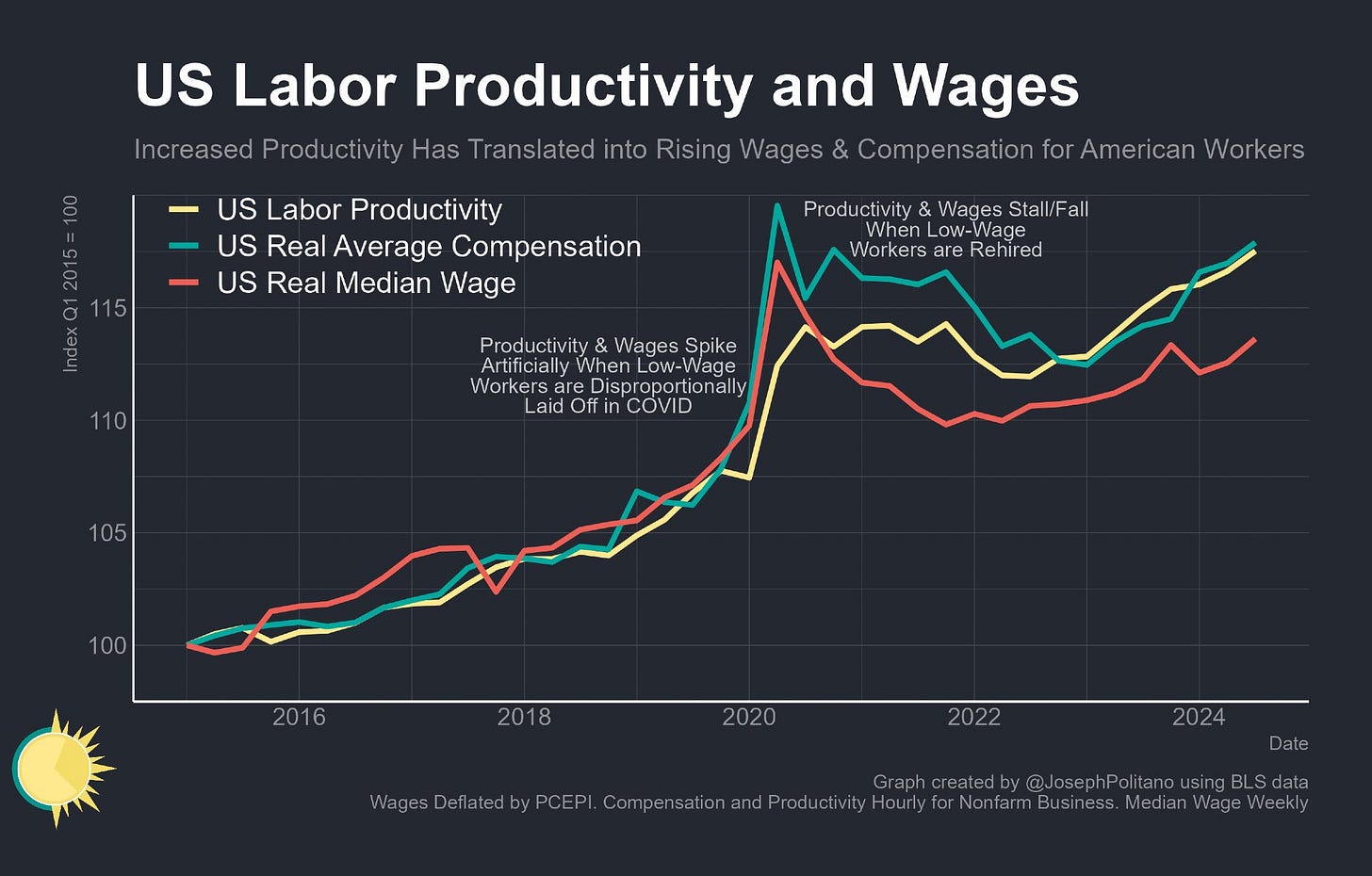Getting more productive, or just harder to measure (or both)
Labor Productivity is accelerating, but that doesn't mean labor productivity is accelerating (although it might)
“labor productivity” accelerates
do higher interest rates flip the productivity switch, or is something else afoot?
$kills & Trade$ getting paid
profit growth > revenue growth
👉👉👉Reminder to sign up for the Weekly Recap only, if daily emails is too much. Find me on twitter, for more fun. Are we more productive, or just hard to measure?
An alternative way of coping with an aging-driven worker shortage is to do more with less.
Y’know, robotics and automation (the “China Way”), but also just getting more efficient and otherwise trimming the fat. Those are things that firms are always doing, but presumably they could do even more of, if circumstances require.
Necessity is the mother of invention, after all.
“Labor productivity” accelerates
In a similar vein, it’s become fashionable to observe that “labor productivity” has increased:
While median wages are still slightly below-trend, productivity and average compensation have accelerated slightly.
Now, Random Walk is a little skeptical of metrics like “labor productivity.”
It’s really just dividing GDP by hours worked, which just as easily reflects the substantial noise in GDP (and changing composition) than actual productivity gains.
In other words, “labor productivity” is definitely telling you something, but it’s not necessarily telling you that workers have gotten more productive. It just means the the relationship between one thing that we roughly measure (“output”) and another thing that we roughly measure (“hours worked”) has changed.
To wit, labor productivity appears to accelerate at precisely the moment that interest rates begin to rise, in earnest:




